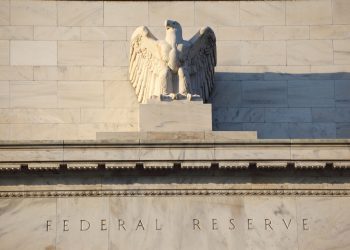Rising closing costs are adding to homebuyers’ affordability woes, putting their dream of homeownership even further out of reach. In an attempt to combat this, the Consumer Financial Protection Bureau (CFPB) is taking aim at so-called mortgage “junk fees” that are often tacked onto closing costs, launching a formal inquiry into the issue, according to a Request for Information notice published June 6 in the Federal Register.
From 2021 to 2023, median total loan costs for home mortgages increased by over 36%, according to a CFPB analysis. In addition to higher home prices and mortgage rates, these mandatory borrower fees add even more strain on household budgets and families’ ability to afford a down payment, the CFPB said.
Higher third-party fees can also impact mortgage lenders’ ability to offer competitive loan programs and pricing. That’s because lenders have to either absorb the costs or, typically, pass them down to borrowers.
Credit report and employment verification fees in particular have skyrocketed in recent years. In 2023, credit scoring service FICO hiked prices for its tri-merge credit report from each of the major credit bureaus (Equifax, TransUnion and Experian) by 10% to as much as 400%, according to a letter from the National Consumer Reporting Association.
Meanwhile, Equifax’s The Work Number, which verifies borrower employment for mortgage companies, currently charges lenders $55 to $70 per employment verification pull. Most lenders verify a borrower’s employment twice—once during underwriting and again just before closing.
The cost doubles for each pull if there are two co-borrowers, meaning it could cost up to $280 per loan file to verify employment, according to a letter from the Community Home Lenders of America to federal housing leaders in March.
However, some mortgage professionals worry that the extra scrutiny from the CFPB could lead to additional regulation that could add time and expense to the lending process amid a down market.
Some lenders wary, others see wisdom in CFPB’s review
Anytime the CFPB indicates additional oversight might be on the way, mortgage lenders tend to worry that potential new regulations could increase their compliance burden and, in turn, loan costs.
Following CFPB’s inquiry announcement, the American Bankers Association (ABA), Housing Policy Council (HPC) and Mortgage Bankers Association (MBA) released a joint statement pointing out that mortgage lenders already disclose loan costs to borrowers on forms developed and required by Congress in the Dodd-Frank Act.
Many of the costs listed on those forms, including title search, appraisal and credit reporting fees, are required by federal law and were implemented by the CFPB, according to the statement.
“The industry invested considerable resources to implement these new rules just a decade ago,” the statement reads. “If the CFPB is now modifying its previous position and is considering changing this complex regulatory disclosure regime, a rule-making process governed by the Administrative Procedure Act—and supported by a robust cost-benefit analysis—is the only appropriate vehicle to initiate that work.”
But not all lenders think there’s reason for alarm, and some believe the CFPB is simply doing its due diligence.
With Dodd-Frank, mortgage lenders are responsible for only three fees: loan origination fee, discount points and an underwriting or commitment fee, says Jon Overfelt, SVP of sales and owner of American Security Mortgage.
“The rest of the fees are third party, and we have no control over them,” Overfelt explains. “The CFPB knows what they’re doing. I think when they start diving into it and really looking at it, where they’re going to get the most traction is around title, credit and (employment) verification fees.”
He adds that lenders are in a “weird time” where they’re fighting for so few deals compared to a normal market. As a result, lenders are investing money and resources into the borrower experience because they can’t afford not to.
“Every customer is important,” Overfelt says. “And if you’re closing half the volume that you’re used to closing and you miss out on one deal, it hurts. So that’s part of what’s driving the cost up.”
Higher fees for lenders means higher costs for borrowers
Lenders eventually have to redistribute the higher costs from credit and employment verification vendors to borrowers in their loan pricing to stay profitable. But it’s a thorny, complex issue, says Taylor Stork, president and director with Developers Mortgage Company.
Notably, there was a lot of noise in the mortgage industry about the dramatic hike in credit reporting fees so quickly, Stork says.
“FICO scores are super important. Before FICO scores existed, there was no objective metric that could even out the playing field and provide a nationwide or any kind of level consistency for making and pricing credit decisions.”
This means that borrowers were often priced or approved for mortgages based on subjective factors, such as what they looked like sitting across the table, says Stork, echoing again their importance to pricing a borrower’s risk.
With credit reporting agencies, employment verification and title companies being controlled by a handful of players, there’s little room for negotiation or shopping around for these items, which are required to approve a loan, he notes.
“When you have a monopoly or an oligopoly or some structure where only a few players are able to compete, how do I negotiate that? I can’t negotiate with Equifax or Transunion,” Stork says.
For its part, the CFPB is forging ahead with its inquiry to gather information and explore potential solutions to ever-rising mortgage closing costs. The deadline for public comment on this issue is August 2, 2024.












